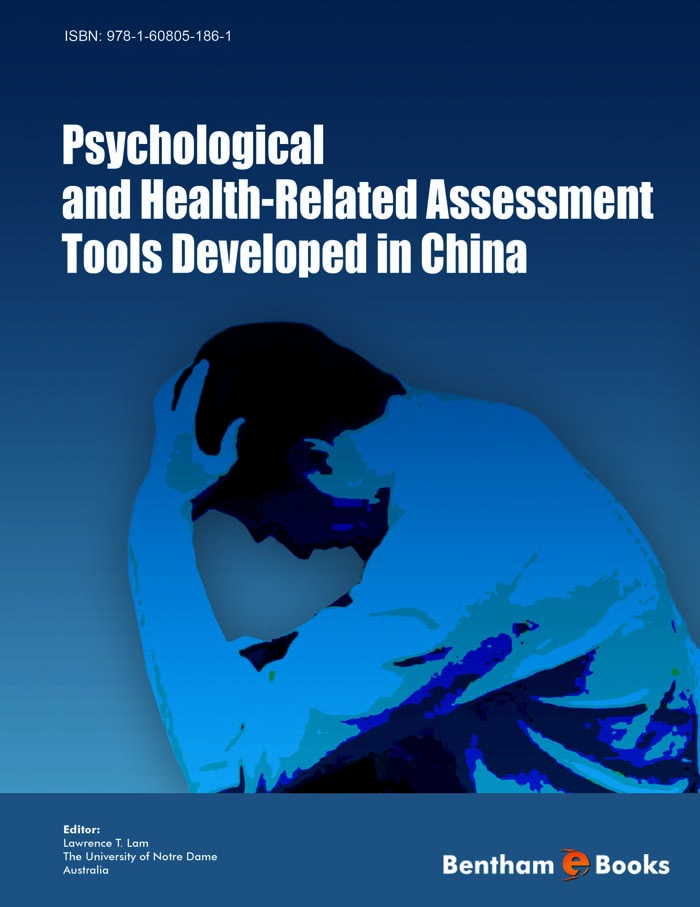Foreword
Psychosocial and health-related assessment tools are important vehicles on which the development of health science research is founded on. There has been a strong emphasis on the importance of their interactions within illnesses throughout the history of health care evolution. As a matter of fact, health was defined as being "a state of complete physical, mental, and social well-being and not merely the absence of disease or infirmity" upon the establishment of the World Health Organization (WHO) back in 1948. This was further reiterated in the Ottawa Charter for Health Promotion in 1986 by the WHO as to re-consolidate that health is "a resource for everyday life, not the objective of living. Health is a positive concept emphasizing social and personal resources, as well as physical capacities." Therefore, the intimate relationship between psychosocial and physical health in well-rounded medical care and health promotion has always been recognized as an essence of the art of medicine in addressing to the people's actual needs. Modern medicine would not be complete without any one of the psychosocial and health components mentioned above.
Yet based on the differences among the social norms and cultural practices within global societies, assessment tools with regards to psychosocial and health-related issues are variable according to different time, place, and people. Even though the common ultimate goal of these assessments are to understand the social, mental, and medical needs of a society in a systematic and reproducible fashion, the coupling of these tools with other health promotional programs are quite delicate and sensitive. The appropriate applications of these tools are the key to achieving efficiency, effectiveness, and equity in subsequent projects and programs that can target the medical needs of any community. Well-rounded tools can even address to both the short and long term needs of any society.
The purpose of this book is to illustrate what are some of the most up-to-date psychosocial and health-related assessment tools that are tailor-made for the developing Chinese society to address to the health needs of her people. Being a country consists of slightly over 1.3 billion people with 56 ethnic groups and 22 provinces, the cultural and social diversity amongst Chinese themselves are tremendous. Appropriate pairing of both psychosocial and health-assessment tools with subsequent health promotion and health education programs would address to the needs of the targeted population with greater efficiency, effectiveness, and equity. This book starts with a didactic description of different assessment tools as applied to different exemplary situations in China and ends with a comprehensive analysis of how these evaluation tools are suitable for the changing health needs of the Chinese communities. It paints a picturesque view of how a situation should be assessed before the commencement of subsequent health related projects to maximize the benefit of any program. The ultimate goal is to streamline healthcare research that would be applicable to a patient-oriented health system. This book is intended for psychologists, sociologists, epidemiologists, biostatisticians, health services researchers, and public health professionals, as well as students in these fields who are interested in learning more about quality psychosocial and health-related assessment tools.
This will be one of the first few books which target on the psychosocial and health-related assessment tools suitable for the Chinese society today. Not only will this book demonstrate how and when to use different evaluation tools based on different setting approaches, the most currently social and behavioural theories will also be discussed as to provide insightful evaluation towards the health needs of different ethnic groups. Illustrative examples will garnish the educational and didactic information presented. Written by passionate health educators in the fields of Medicine, Epidemiology, Biostatistics, and Public Health, this book is truly a gem in the field of health medicine research with historical value.
Joseph Tak-Fai Lau PhD
Division of Health Improvement
School of Public Health and Primary Care
The Chinese University Hong Kong
Hong Kong, PR CHINA

